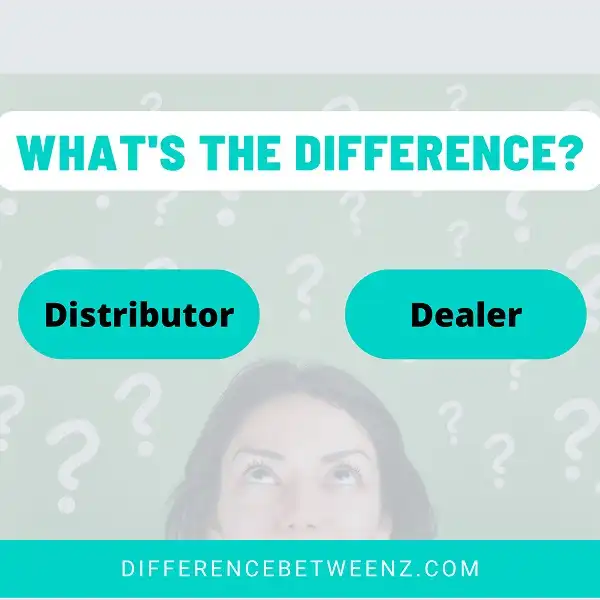There is a lot of confusion around the role of distributors and dealers in the automotive industry. In this blog post, we will explain the difference between these two roles and how they each benefit the automotive market. Stay tuned!
What is a Distributor?
Distributors are an integral part of a functioning economy. They purchase items in bulk from the producers, manage storage and shipping logistics, and sell them to retailers so that consumers can have timely access to the goods they need. Distributors can offer many benefits to businesses through their purchasing power and contacts with manufacturers, which enables them to provide better pricing and more options than what the manufacturer can offer directly. Distributing lines of business products saves time for retailers as well. Distributors also monitor markets and trends, ensuring that companies have access to the latest technological advances at cost-efficient prices. Distributors assist businesses in evaluating risks and opportunities as well, helping to ensure long-term success.
What is a Dealer?
- Dealer purchases involve the acquisition of either single units or smaller bulk orders from any variety of sources, such as wholesalers, retailers, distributors, and manufacturers.
- Dealer purchases allow dealers to have the convenience of ordering exactly what they need without investing in large inventorying costs. Dealer purchases offer access to a wide range of products that may not always be available locally.
- Dealer purchasing can help optimize supply chain efficiencies in order to mitigate cost increases while still providing end-users with an excellent selection of product options. Dealer purchasing is a great way for businesses to grow and maintain their competitive edge in an ever-changing marketplace.
Difference between Distributor and Dealer
It is important to understand the difference between a distributor and a dealer when doing business.
- A distributor buys directly from the manufacturer, while a dealer purchases goods from a distributor.
- Distributors typically provide products in bulk orders with discounts, while dealers act as middlemen and buy goods according to individual customer demand.
- Distributors can also offer excellent customer support, services, and resources that are not available through dealers.
- Whereas dealers focus on direct marketing, advertising, and customer service rather than providing resources.
Finally, distributors are mainly interested in big sales such as those of commercial clients, while dealers generally deal with smaller sales to consumers or businesses. Understanding the distinction between distributors and dealers helps customers make informed decisions when buying products or services.
Conclusion
The difference between a distributor and a dealer may seem like semantics, but it’s an important distinction to make when you’re looking for the right partner to help sell your product. A distributor will generally have a wider reach and be able to get your product in front of more potential buyers, while a dealer will be more specialized in their focus and have a deeper understanding of your product and its target market. When choosing the right partner for selling your product, it’s important to consider what kind of relationship you want to build with them.


